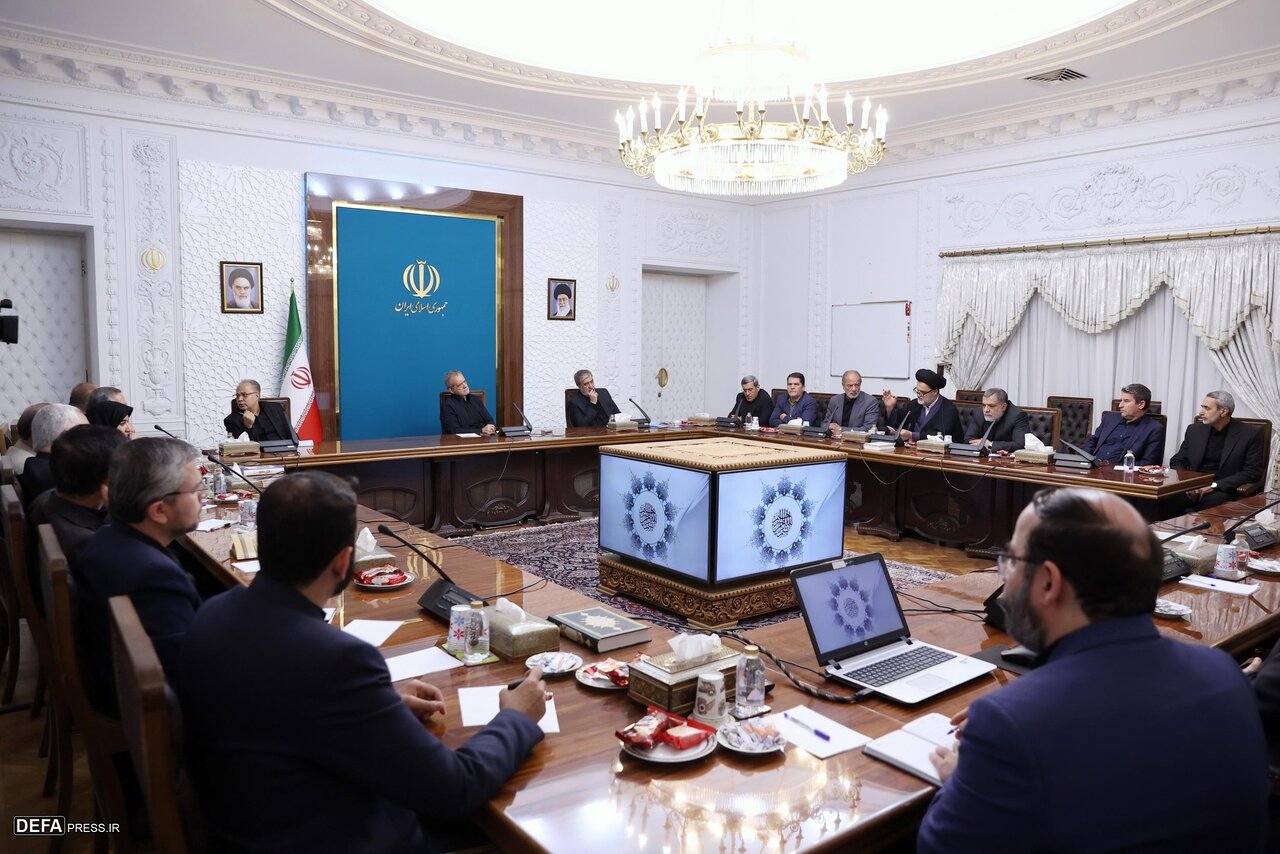Joint parliamentary session with president focuses on enhancing Iran’s defense budget

TEHRAN – The spokesperson for the National Security and Foreign Policy Committee in Iran’s Parliament, Ebrahim Rezaei, announces that in a joint meeting with President Masoud Pezeshkian, members of the committee emphasized the imperative of prioritizing the armed forces and enhancing the country’s defensive capabilities in the upcoming year’s budget.
According to Rezaei, the meeting focused on several critical issues related to safeguarding Iran’s national security and advancing its foreign policy objectives, especially in light of recent developments following the 12-day confrontation with the Zionist regime.
At the session, the heads of the committee’s five specialized subcommittees—including security, defense, foreign relations, nuclear affairs, and human rights—along with several members, presented comprehensive reports and shared their assessments with the President. The committee underscored the necessity of allocating sufficient resources to strengthen the military and border defense units, while also attending to the welfare of underprivileged segments of society.
Members highlighted the importance of adopting a community-based approach to public security and addressed concerns regarding the security situation in the country’s northeastern and southeastern regions. They also stressed the strategic role of media in raising public awareness and reinforcing national resilience.
On the diplomatic front, the committee stressed the need to deepen relations with neighboring states and to carefully navigate the emerging geopolitical blocs. The importance of diplomatic solidarity with the oppressed people of Gaza was also reaffirmed, alongside calls for robust support through all available international channels.
On June 13, the Zionist regime launched a military offensive against Iran, targeting its military installations, nuclear facilities, and civilian areas over a span of 12 days. The United States later escalated the conflict by carrying out airstrikes on three of Iran’s nuclear sites—Natanz, Fordow, and Isfahan—on June 22.
In swift retaliation, Iranian armed forces launched a series of powerful counterstrikes. The Islamic Revolution Guards Corps (IRGC) Aerospace Force executed 22 rounds of missile attacks against targets in the occupied territories under Operation True Promise III, causing significant damage and casualties.
In response to the U.S. strikes, Iran also fired a barrage of missiles at al-Udeid Air Base in Qatar, the largest U.S. military installation in West Asia. The extent of Iran’s retaliatory moves forced the Israeli regime to request a pause in hostilities which was announced by the U.S. on June 24.
Leave a Comment